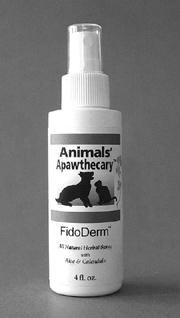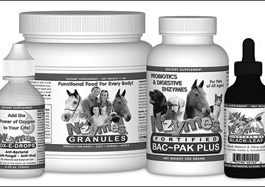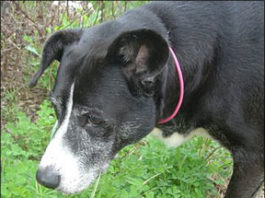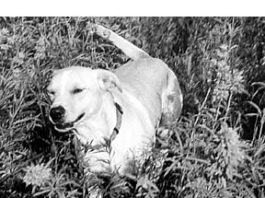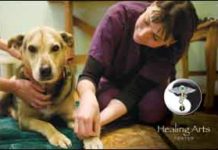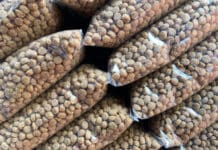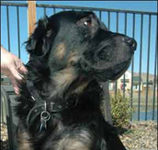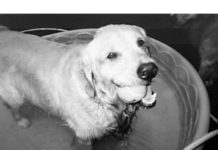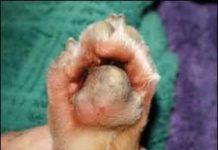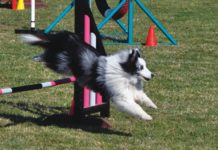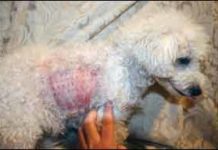Suspect Your Itchy Dog Has a Food Allergy?
If you suspect your dog has a food allergy, follow these steps:
Canine Atopic Dermatitis
In late autumn, we closed our pool, an annual event that all four of our swim-loving dogs dread. They will swim as long into the fall season as we allow and I am pretty certain that our Toller, Chippy, would bring out an ice pick and break his way through the ice if he could. In addition to the daily joy, excitement, and happiness that our pool brings to us all, we have found that it has had an additional benefit for some of our dogs. The pool and the daily swims that it provides help to keep itchy dogs from itching all summer long.
Canine Allergies: Most Common Causes, Best Tests, and Effective Treatments
Maybe this has happened to you: Youre reading or watching TV or at your computer, and your dog is lying on the carpet near you. Youre absorbed in what you are doing, but all of a sudden, you realize that your dog is licking or chewing himself, or scratching his ear with a hind paw. Hey! you say to your dog. Stop that! Your dog stops, looks at you, and wags his tail. You go back to doing what you were doing and a few minutes later, you hear the tell-tale sounds of licking or chewing or scratching again. Every dog does a certain amount of self-grooming to keep himself clean and every dog owner should be aware of how much is normal, and how much is too much, because too much is often the first indication that a dog is having an allergy attack.
Commercial Dog Food For Allergies
Owners who don't feel capable of or willing to carry out a rigorous trial may prefer to try a commercial dog food that has been processed in such a way as to render the proteins hypoallergenic, or one designed specifically for use in an elimination diet. Chances are good that your veterinarian carries at least one of these types of food. Some are limited-ingredient diets, available over the counter; others are prescription diets. All cost around 30 percent more than even the best nonprescription dog foods.
Behavior Modification for Itchy Dogs
Excessive self-licking and chewing can be caused by a medical issue. It can also be a behavioral problem, a classic example of an obsessive/compulsive disorder. Either way, it's annoying to the dog's human companion, and dangerous to the health of the dog. Here are tips for dealing with dogs who self-lick and chew excessively. To begin behavior modification, determine your dog's stressors and start eliminating them. Make a list of everything?you can think that is stresses your dog even just a little bit, even if the stressors don't seem directly related to the licking. Your list might include thunder, small children, dogs on television, cats, riding in cars, visits to the vet, shock collars, medical issues, and many more. Most owners can identify between 10 and 20 stressors for their dogs.
Mangy Mutts?
What is demodectic mange caused by? Why are Boxers so susceptible to it? How can all these puppies be affected by it when I know for a fact that none of their parents or even grandparents ever had demodectic mange? How would you recommend treating it in an older dog, and how would you treat it in puppies?
Holistic Treatments for Canine Skin Rashes
Juniper suffered a brush with bloat
Identifying and Treating Skin Conditions that can Affect Your Dog
Yikes! What happened to Fido’s nose? And what’s wrong with Fluffy’s paw pads? The possibilities are many, and a surprising number of nose and paw pad problems are related. Because illnesses in this category often have similar or identical symptoms, a veterinarian’s diagnosis can be important. The following overview will help you identify, prevent, or treat these disorders. The most frequently asked questions about dogs’ noses concern color. Dogs have black or dark noses and paw pads because of melanin, a pigment that darkens skin. When melanin production slows or stops, the skin lightens uniformly or in patches. The term nasodigital refers to both nose and toes. A thickening of the outer layer of skin (hyperkeratosis) at the edges of the nose or paw pads can develop into painful cracks, fissures, erosions, and ulcers.
Food Elimination Trial: A Valuable Tool (When Done Correctly)
A valid food elimination trial for the purpose of confirming food hypersensitivity consists of three phases: elimination, challenge, and provocation. In the first (elimination) phase, the dog is fed a diet consisting of a single protein source and a single carbohydrate source. Both of these ingredients should be completely “novel” to the dog – foods he’s never eaten before. (Thirty years ago, lamb and rice was the go-to food elimination diet, because those ingredients were not yet widely available in commercial pet foods. Because the diet was novel, few dogs had developed allergies to those ingredients, and “lamb and rice” gained an unearned reputation as a “hypoallergenic” diet.
10 Steps to Healthy Skin and a Silky Coat for Your Dog
All dog lovers appreciate seeing a healthy, happy dog, running in the sun with a glistening coat. And it's great to hear, Wow! Your dog's coat is so soft and shiny. How do you do it?" It's wonderful if you are one of the lucky owners whose dog inspires this sort of spontaneous compliment
When It Comes to Allergy Tests, Some Dogs Flunk
There are a few different types of tests available that purport to identify the allergens to which a dog is hypersensitive; some of them are helpful, and some are a waste of time and money. Since all of them are commonly referred to as allergy tests
A Canine Allergy Glossary
An Allergen is defined as a substance that causes an allergic reaction. Anything can be an allergen to a hypersensitive individual, even water. The term has meaning only in relation to an individual who is hypersensitive to that substance.


